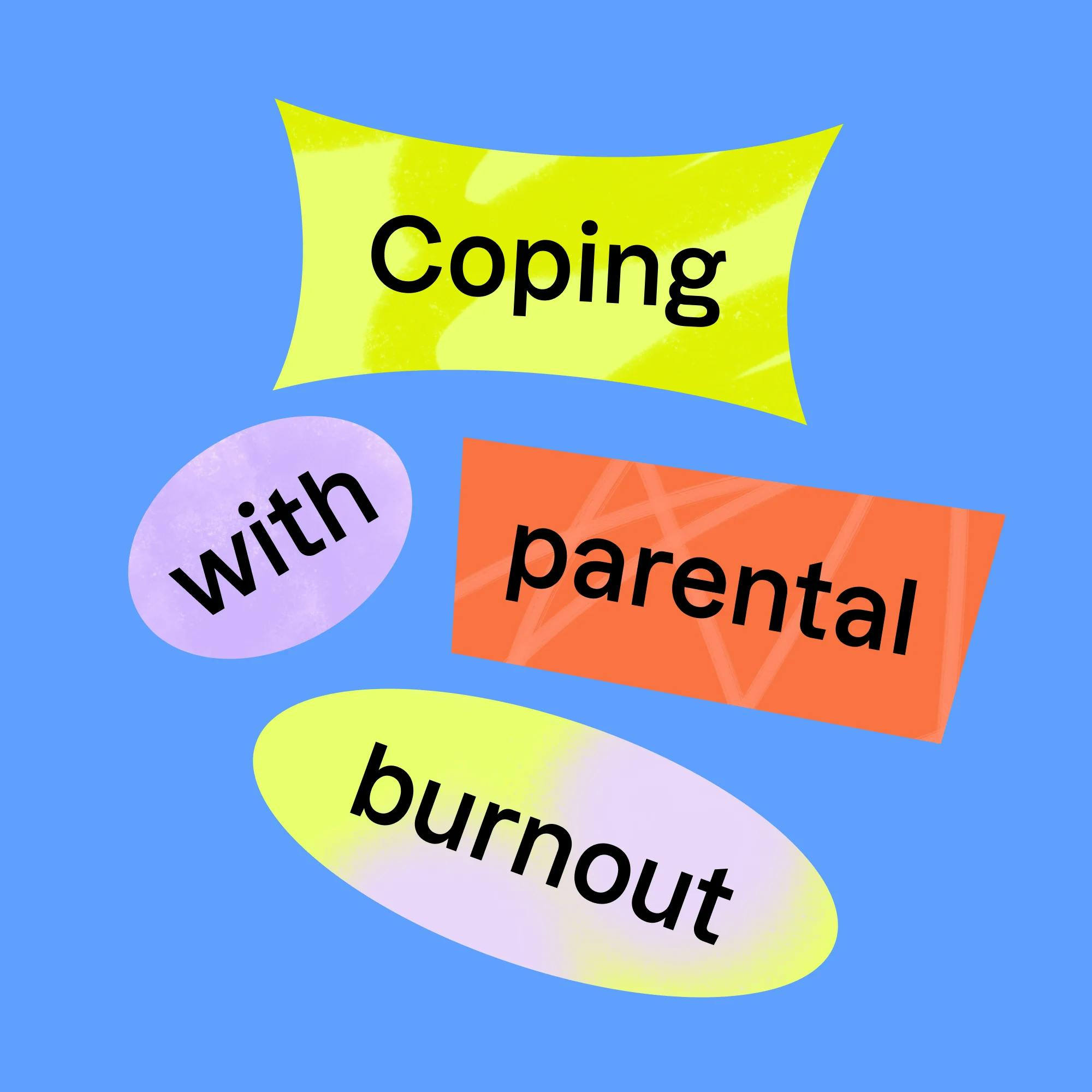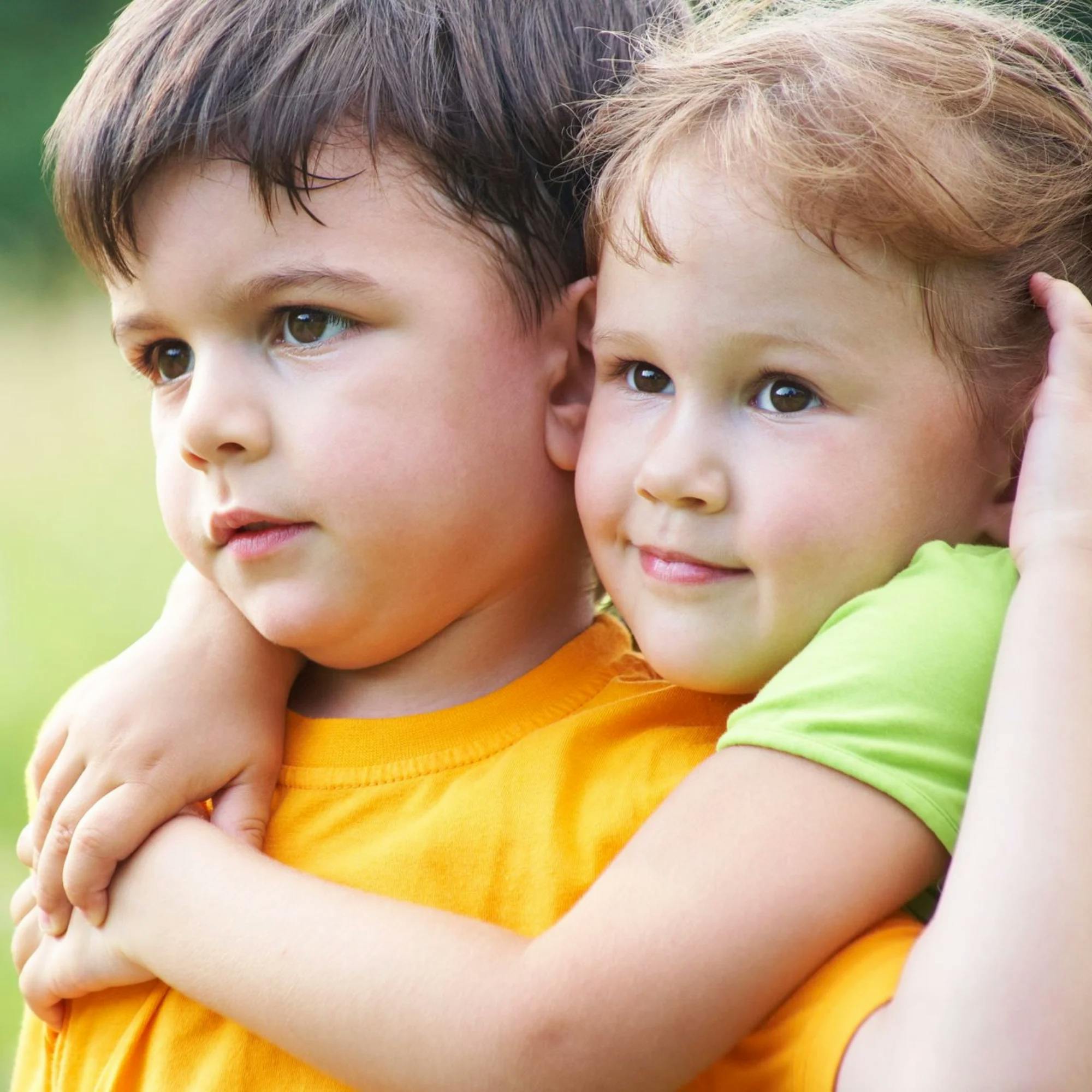It’s a common question from parents of autistic children: “Will my child ever be able to talk?” While every autistic child’s communication journey is different, there is hope. And meaningful communication can consist of much more than words.
Read on for the most up-to-date information about when autistic children might begin to speak, what speech therapy can do, and how to support children with nonverbal autism as they learn to express themselves and connect with others.
Will my autistic child ever be able to talk?
Every child with autism (also known as autism spectrum disorder or ASD) is different. Some autistic children speak, but they begin talking at a later age than typical. Others express themselves through augmentative and alternative communication (AAC), such as pictures, gestures, or speech-generating devices.
The best way to understand your child’s potential for speech is through an evaluation with a speech therapist. Early intervention can help build communication skills, whether through spoken words, AAC, or both.
Personalized care for your child
We support autistic children for who they are and help them build new skills. Get matched with a licensed speech therapist today.
 Get started
Get startedWhen do children with autism begin to speak?
The age at which autistic children begin to speak varies. Some kids use their first words and start speaking at the typical age of 12 to 18 months. Others have significant delays. About 25% to 30% of autistic children remain minimally verbal or nonverbal.
How to tell the difference between a speech delay and autism
If you’re worried about your child’s communication, it helps to know the difference between a speech delay and autism. Kids with speech and language delays follow the same patterns as other kids, like interacting, copying others, and responding to attention. However, they reach communication milestones at a slower pace.
Autistic children may prefer solitary activities and avoid eye contact. They may show less interest in copying other people’s actions and facial expressions. Autistic kids sometimes struggle with nonverbal communication, such as smiling or gestures. They may also have unique behaviors, like repetitive actions or speech. Recognizing the signs of autism early can help you determine the best ways to support your child.


Can kids with nonverbal autism learn to talk?
“It’s important to note that being nonverbal, or nonspeaking, doesn’t mean your child will never speak,” says Abby Barnes, M.S., CCC-SLP, a speech-language pathologist with Expressable. With early intervention and the right support, many children can make meaningful progress in communication. They may also be able to develop some form of spoken language.
Speech therapy focuses on building the foundation for communication, starting with things like gestures, sounds, or sign language. Therapists may also introduce AAC tools, such as picture symbols or speech-generating devices. These tools help children express their wants and needs and, in some cases, can even help them learn to talk over time.


How parents can support communication at home: 5 strategies for nonverbal autism
If your child is nonverbal or minimally verbal, you may wonder what you can do at home to help them communicate. The good news is that small, consistent efforts can make a big difference! Speech therapy works best when caregivers join in.
“Communication can happen in many ways, not just through spoken words,” Barnes notes. Here are five simple, evidence-based strategies you can start using today.
1 Get silly to encourage imitation
Imitation is one of the earliest building blocks of communication. Before a child learns to use words, they need to be able to copy sounds, actions, and facial expressions.
One of the best ways to spark imitation is to get playful! Make silly faces, blow raspberries, or make funny animal sounds–whatever makes your child laugh and engage. When your child copies you, celebrate it! The more they imitate, the more they practice using their mouth and voice in new ways, which are skills that lead to speech.
2 Use simple signs to support communication
You might wonder, “Why use sign language if I want my child to talk?” But for many autistic children, signs are a bridge to spoken language. Signing is often easier than saying a word out loud because it gives your child a way to express themselves right now.
Start with simple, meaningful signs like more, help, all done, or open. Model, or make, the sign each time you say the word. If your child allows, gently guide their hands to help them learn. Over time, as your child begins to use words, these signs will naturally fade away.
3 Create opportunities for your child to ask for things
Some autistic children are very independent. For example, they can reach what they need without having to ask. While that’s great for independence, it also means fewer chances to practice communication.
You can help by setting up small moments that motivate your child to communicate. For example, hold out two snacks and ask, “Do you want the crackers or the carrots?” When they point or gesture, respond with the word: “Crackers! You want the crackers!”
Over time, encourage them to make a sound or say the word. Celebrate every attempt (no matter how it sounds)! Your encouragement helps them see that communication works.
4 Model short phrases
Once your child begins to use single words or signs, help them build on that progress by modeling two-word combinations.
For example, if they say “drink,” you can say “more drink” or “want drink.” Keep your phrases short, repeat them often, and use real-life moments, like mealtime or playtime, to make it meaningful. Small steps like this help your child move toward more complex speech.
5 Use visuals to make communication easier
For many children with nonverbal autism, pictures or visual supports can be powerful communication tools. Try using a small board or notebook with pictures of familiar foods, toys, or daily activities.
Model how to use it by pointing to a picture as you say the word: “I want the book.” Then encourage your child to choose a picture and hand it to you or place it on the board: “You want to play trains? Great idea!”
These visuals help your child express themselves while reducing frustration. Using visuals can also make the connection between pictures, words, and actions clearer to your child.
Remember: Communication isn’t just about talking…it’s about connection. Every smile, sign, sound, or picture your child uses is a step toward expressing themselves and being understood.

How autistic children develop communication skills
Every child with autism develops communication in their own unique way. That’s part of why it’s called a “spectrum.” Some children may speak later than their peers, while others communicate through gestures, signs, or devices. Some may talk in a typical way but need extra support with social communication or conversational skills.
Other autistic children are what we call gestalt language processors. This means they learn language in larger “chunks” or phrases, rather than one word at a time. For example, a child who’s a gestalt language processor might repeat what you say right after you say it. So if you say, “Do you want some juice?,” they respond, “Do you want some juice?” This is called immediate echolalia.
Or they might use lines from shows or songs later on (called delayed echolalia) to express feelings or ideas. For instance, saying “I have a diagnosis!” after getting hurt might mean, “I’m hurt and need help,” based on a phrase they’ve heard on the TV show “Doc McStuffins.”
These repetitions aren’t meaningless–they’re actually early steps in language development, says Emilie Naidoff, MA, CCC-SLP, a licensed speech-language pathologist at Expressable. If you hear your child use these phrases, you might worry and think you need to correct them, “but echolalia can be an important part of language growth,” Naidoff says. “It’s how some children first begin to use language to connect, express feelings, or share experiences.” Over time, speech therapy can help children break down and reassemble these phrases into original sentences, leading to more flexible communication.


How speech therapy helps autistic children
Autistic children can have all kinds of strengths. The list is long! They often have a great memory and are honest and direct. Many autistic people are creative thinkers and problem solvers.
At the same time, autistic people often do need support with communication. Speech therapy can be life-changing for autistic people as well as for their family members. Speech therapists help autistic children develop receptive and expressive language skills:
Receptive language: Understanding what others are communicating to you.
Expressive language: Communicating your thoughts and ideas to others.
Speech therapy also addresses common communication challenges for autistic children. This includes everything from echolalia to using behaviors like tantrums to express needs.
With the right support, your child can discover meaningful ways to connect with the world through spoken language, AAC, or a combination of both. If you’d like to learn more about speech therapy for autism, you can get matched with one of Expressable’s licensed speech therapists today. You can also learn more about our affirming approach to speech therapy in our autism treatment guide.


Frequently asked questions
Will my autistic child ever be able to talk?
Yes, many autistic children can learn to talk with the right support. Every child develops differently. Some may use spoken words; others use gestures or communication devices. Early evaluation and speech therapy can help you understand your child’s strengths and build a personalized plan for communication growth.
What is the average age an autistic child speaks?
There’s no single “average” age, since every child’s timeline is unique. Some autistic children begin using words at around age 2. Others may speak later or communicate in other ways, such as through AAC or signs. The key is early support to strengthen communication skills, whatever form that takes.
Can nonverbal autistic children learn to speak?
Yes, being nonverbal or nonspeaking doesn’t mean a child will never speak. With early intervention and consistent speech therapy, many autistic children make progress in spoken language. Speech therapists may start with gestures, sounds, or AAC to build the foundation for communication and speech.
What happens in speech therapy for autistic children?
Speech therapy is personalized to your child’s needs. Sessions may focus on improving imitation, teaching gestures or signs, using AAC, and practicing speech sounds. Therapists also work on social communication and helping your child express wants and needs in everyday life.
How can I help my autistic child communicate at home?
Consistency and connection make the biggest difference. Try modeling simple words, using visuals, celebrating small communication attempts, and giving your child chances to request things. Simple daily practice (paired with professional support) can lead to meaningful progress.
Key takeaways
Every child with autism is different. Some begin talking at a later age than typical. Others express themselves through augmentative and alternative communication (AAC), such as pictures, gestures, or speech-generating devices.
About 25% to 30% of autistic children remain minimally verbal or nonverbal.
There are simple strategies you can use at home to help your autistic child develop language.
The best way to understand your child’s potential for speech is through a speech therapy evaluation. With the right support, many children can make meaningful progress in communication. They may also be able to develop some form of spoken language.
An important note: We believe that when speaking about any community as a whole, the best approach is to prioritize that community’s voices, needs, and preferences. Within the larger autism community, the current language preference is identity-first (e.g., "autistic children"), which is why we use that language in our content.
Also: The term “nonverbal” is used in this article because it’s commonly searched online by families looking for support. Many in the autistic community prefer “nonspeaking,” and we honor that preference while using language that helps families find the information they need.
How Expressable Can Help
Concerned your child isn't reaching age-expected milestones? Looking for communication support from a professional? Expressable is a national online speech therapy practice serving children and adults. We treat all major areas of communication and feeding, offer flexible hours including evenings and weekends, and accept most major health insurance plans. We’re proud to have earned more than 3,000 5-star reviews from our clients (4.9/5 average).
Our therapy model is centered on parent and caregiver involvement. Research proves that empowering caregivers to participate in their loved one’s therapy leads to better outcomes. That’s why we combine live, 1-on-1 speech therapy with personalized education and home practice activities for faster progress.
Communication is more than words. It’s how we share how we feel and show who we are. We’re here to help you or your child do just that.
 Alexis Irazoque, M.S., CCC-SLP
Alexis Irazoque, M.S., CCC-SLP












